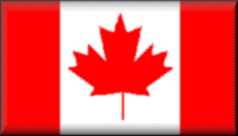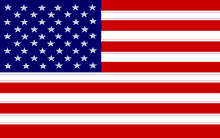Thicken My Wallet recently wrote an interesting post about “Leaving free money on the table“. The gist of the post is that there are a number of scholarships and government grants which go unclaimed each year, and that just by applying you can get free money.
This is true for what it is. My favourite example was a Kitchener/Waterloo region housing lottery for first time home owners. They could apply to a lottery to help with up to $11.3K to assist with their down-payment. No lottery was held, because fewer applications were received than the number of awards they had to give (so everyone who applied got it). I’ve never been as disappointed to own property as when I read about this.
There is another side to the issue (with respect to TMW).
Years ago I started a business that was intended to use some of this “free money”. The short version was that I’d sell something of value to families that they’d be able to purchase with grant money (which I’d help them apply for). The business itself actually fell under a number of categories which would have qualified for grants.
In total, I sold to ONE family who used grant money for the purchase (and they bought out of a grant they already had set up – they were actually the ones who initially suggested the business venture to me). They were very happy with the purchase, and continued to buy (even when the grant was pulled back and they had to pay 1/2 the amount out of pocket).
There’s a version of the advance-fee scam that works by contacting individuals or businesses and telling them that they qualify for a grant, and they just need to pay the small application fee to receive a much larger sum of money. Everyone likes free money, and people certainly get taken in by this.
Even TMW’s $500 scholarship came about because someone on the inside met him and told him about it (they came to him). There are no guarantees that you’ll find grants as easily as he did (and certainly no guarantees of your success or the ease of applying). There are businesses (in Canada many “film” companies) that exist solely by applying for government grants. They work darn hard to get the money, but sadly their hard work is focused on navigating the bureaucracy rather than creating value (I suspect they work harder to get the grant money than they do on the funded projects).
I once suggested to a friend that a good business to start would be a service to help people get grants. I looked into it, and found it already exists. PLEASE NOTE: I’m not endorsing the linked-to companies! They require upfront payment to become a member or to hire a “consultant”, rather than collecting a fee if the grant application is successful. This made me suspicious to do business with them. They clearly have an incentive to build membership numbers rather than get grants awarded.
Much like the coupon queens, my experience is you often hear about this juicy, unclaimed, free money, but once you actually go looking for it, you’ll find it to be labour intensive enough that applying turns into a relatively low-paying job.
Other than one-time “lucky strikes” has anyone been able to consistently apply and receive grants or scholarships?
 We had started this effort a year and a half ago but when the lawyer had one final question for us to answer, we put it on the back burner and didn’t get around to it until now. Kudos to my wife for putting in the final push to get this done!
We had started this effort a year and a half ago but when the lawyer had one final question for us to answer, we put it on the back burner and didn’t get around to it until now. Kudos to my wife for putting in the final push to get this done!
